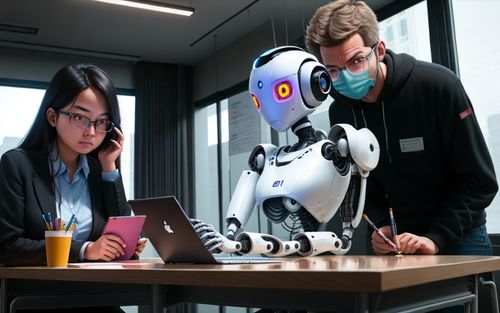
AI content will soon get fingerprints to screw over lazy human cheaters
Think of it as DNA fingerprinting for AI content. You won’t see it, but it will be very much present in the code. Yo sneaky AI-exploiting ass will soon be caught!

Think of it as DNA fingerprinting for AI content. You won’t see it, but it will be very much present in the code. Yo sneaky AI-exploiting ass will soon be caught!

Paw Patrol turns to Poo Patrol. By the way, a similar plan was proposed for a Spanish town, as well, way back in 2015.

It wants to help people that have had an accident. It knows song notes, and every time you make a mistake, the fingertip will guide it to the correct tune.

Imagine an e-bike. Now imagine if it had the world’s smartest talkative AI. Voila! Utopia just made an e-bike that lets you have a conversation with ChatGPT. It’s absurdly needless, yet maddeningly interesting!

Bond can be slick and seductive at his spy game with cutting-edge gizmos, but he got nothing on nerdy scientists making a transparent skin that turns into an invisible mic or a speaker.
A Carnegie Mellon University study reveals starting your brainstorming process with Google can be detrimental to the group's creativity.
Teams relying much on search engines often produced inundatingly same, less original ideas due to a cognitive bias called "fixation effect," where seeing popular answers converges our thought process instead of diverging it.

While individuals weren't necessarily dumber with Google, groups of Google users seemed to get stuck in a rut, often coming up with the same common ideas, sometimes even in the same order! Talk about a copy-and-paste creativity crisis.
"This appears to be due to the fact that Google users came up with the same common answers, often in the same order, as they relied on Google, while non-Google users came up with more distinct answers," explained lead author Danny Oppenheimer.
EDITORS' PICKS